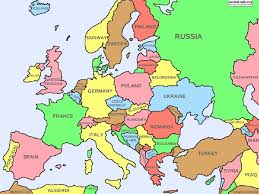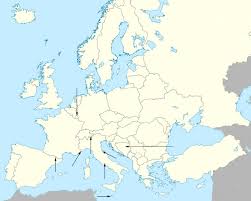Europe Country Quiz
The Europe Country Quiz is a captivating and educational game that challenges players to test their knowledge of European geography. Available on platforms like Sporcle, JetPunk, and educational websites, this interactive quiz has become a favorite for students, trivia enthusiasts, and casual gamers alike. By combining fun with learning, the Europe Country Quiz fosters a deeper understanding of Europe’s diverse nations, capitals, and geographical features. This article explores the game’s origins, mechanics, educational benefits, cultural impact, and enduring appeal in 800 words.

Origins and Evolution
The Europe Country Quiz emerged in the early 2000s alongside the rise of online quiz platforms like Sporcle (launched 2007) and JetPunk (2008), which popularized geography-based trivia. Inspired by traditional classroom quizzes and board games like Risk, these digital quizzes adapted the format for a global audience. The Europe Country Quiz specifically focuses on Europe’s 44 to 47 recognized countries (depending on definitions, e.g., including Kosovo or Cyprus), making it a focused yet challenging test of geographical knowledge.
Initially simple—listing countries within a time limit—the quiz has evolved with variations that include identifying capitals, flags, or map locations. Mobile apps and websites like PurposeGames and World Geography Games have added visual elements, such as clickable maps, while platforms like Quizizz cater to classroom settings with multiplayer modes. The Europe Country Quiz has grown from a niche activity to a global phenomenon, reflecting the internet’s ability to make learning interactive and accessible.
Gameplay Mechanics
The Europe Country Quiz comes in various formats, but the core objective is to name as many European countries as possible within a set time, typically 5 to 15 minutes. Here’s how it typically works on platforms like Sporcle or JetPunk:
- Basic Version: Players type the names of all European countries into a text box. As each correct answer is entered, a list or map updates, providing visual feedback. For example, typing “France” might highlight France on a map or check it off a list. Incorrect answers prompt hints or simply don’t register, encouraging trial and error.
- Variations:
- Capitals Quiz: Players match countries to their capitals (e.g., France–Paris, Serbia–Belgrade).
- Map Quiz: Players click countries on an interactive map, testing spatial recognition.
- Flag Quiz: Players identify countries by their flags, adding a visual challenge.
- Advanced Challenges: Some versions ask for additional details, like bordering countries, languages, or geographical features (e.g., rivers or mountains).
The game’s difficulty varies by platform and player knowledge. Beginners might struggle with smaller nations like Liechtenstein or San Marino, while experts aim for speed or perfection. Time limits add pressure, simulating a race against the clock, though some versions offer untimed modes for learning. Multiplayer options, like those on Quizizz, allow players to compete in real-time, fostering a competitive spirit.
Accessibility is a key strength. The Europe Country Quiz requires no downloads (browser-based versions run on HTML5), and mobile apps ensure playability on the go. Most platforms are free, though some offer premium features like ad-free experiences or custom quizzes.
Why It Captivates
The Europe Country Quiz appeals to a wide audience due to its blend of simplicity and depth. Its straightforward premise—name the countries—makes it accessible to children as young as 8, while the challenge of recalling obscure nations or capitals engages adults. The time constraint adds excitement, turning a learning exercise into a thrilling race. Visual feedback, like a filling map, provides instant gratification, while leaderboards on platforms like JetPunk foster friendly competition.
The game’s replayability is another draw. Europe’s compact geography, with its mix of large nations (e.g., Germany) and microstates (e.g., Monaco), ensures each attempt feels fresh. Players often return to beat their previous scores or challenge friends. The Europe Country Quiz also taps into the human love for trivia, satisfying curiosity about the world while sparking debates about geography (e.g., whether Turkey is European).
Its portability—playable on phones, tablets, or laptops—makes it ideal for classrooms, commutes, or family game nights. The game’s educational focus aligns with school curricula, making it a favorite among teachers and parents seeking screen-based learning that’s both fun and productive.
Educational Benefits
The Europe Country Quiz is a powerful tool for learning geography. It reinforces knowledge of country names, locations, and capitals, helping students visualize Europe’s political map. For younger players, it builds foundational geography skills, while older players refine their understanding of geopolitical boundaries. The flag and capital variants introduce cultural and historical context, as players connect symbols or cities to nations.
Cognitively, the game enhances memory retention through repetition and pattern recognition. Typing or clicking country names strengthens recall, while time pressure improves quick thinking. In classrooms, teachers use the Europe Country Quiz to teach map skills, regional differences, and even history (e.g., why Yugoslavia split into multiple nations). Multiplayer modes foster collaboration and communication, as students discuss strategies or share mnemonics.
The game also promotes global awareness. Players learn about lesser-known countries, like Moldova or Andorra, sparking curiosity about their cultures or histories. For non-native English speakers, it doubles as a language exercise, as many platforms support multiple languages. Parents appreciate its ability to engage kids without violence or complex controls, making it a safe, educational alternative to action games.
Cultural Impact and Community
The Europe Country Quiz has cultivated a vibrant online community. Platforms like Sporcle host user-generated quizzes, allowing players to create custom Europe Country Quiz variants (e.g., naming countries by population or GDP). Social media, including posts on X, buzz with players sharing high scores or debating tricky questions, like whether Vatican City counts as a country. Educational communities, such as Quizizz’s teacher network, integrate the quiz into lesson plans, with thousands of schools using it annually.
The game’s cultural footprint extends to its role in fostering geopolitical literacy. In an interconnected world, understanding Europe’s nations—home to the EU, NATO, and diverse cultures—is increasingly vital. The Europe Country Quiz makes this knowledge accessible, encouraging players to explore beyond the game through travel, reading, or documentaries.
Challenges and Limitations
While engaging, the Europe Country Quiz can frustrate beginners unfamiliar with Europe’s smaller states. Some platforms lack clear hints, and spelling sensitivity (e.g., “Czechia” vs. “Czech Republic”) can trip up players. Accessibility for younger children may require adult guidance, especially for reading-heavy versions. Additionally, debates over Europe’s boundaries (e.g., including Georgia or Azerbaijan) can confuse players, though most quizzes stick to standard definitions.

Conclusion
The Europe Country Quiz is more than a game—it’s a gateway to geographical discovery. Its blend of fun, challenge, and education makes it a standout in the world of online trivia. Whether played solo to beat a personal best, in a classroom to spark learning, or with friends to fuel competition, the Europe Country Quiz transforms abstract geography into an engaging adventure. As platforms evolve and new variants emerge, this quiz continues to inspire curiosity, connecting players to Europe’s rich tapestry one country at a time.
